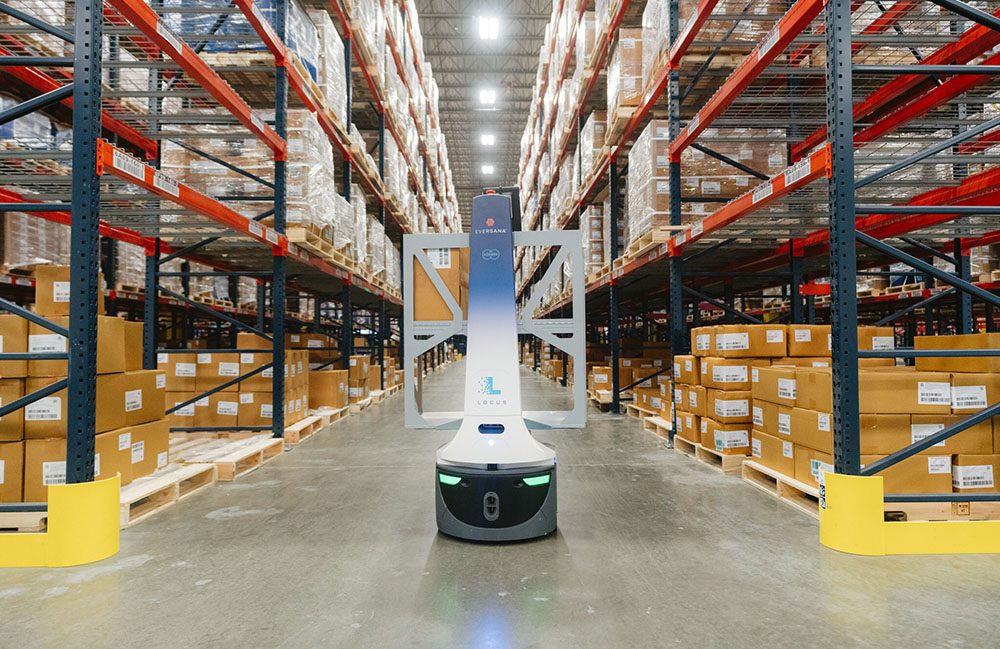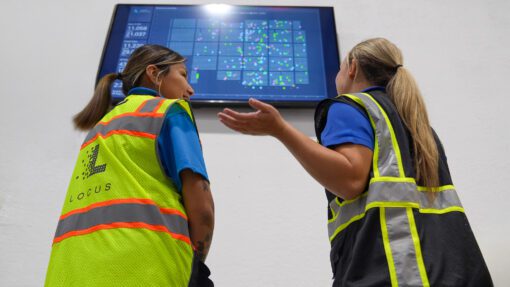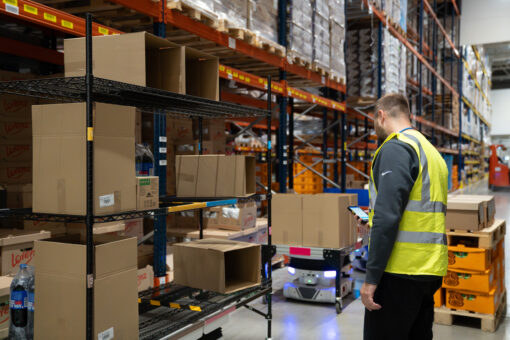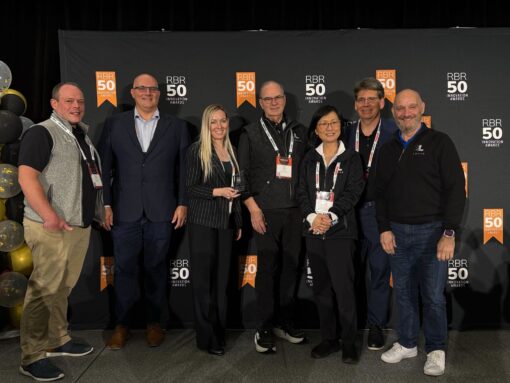WP: How to achieve 400 UPH with Locus Fast Pick
WP: How to achieve 400 UPH with Locus Fast Pick Download Now!
Low-Code is the Future of Warehouse Management: Why It Matters
Mary Hart, Sr. Content Marketing Manager

For years, warehouse management systems (WMS) have functioned like mission control in that they’re powerful and essential, but often inflexible and intimidating to operate. Customizing them required long development cycles, specialized expertise, and a willingness to take on technical debt that could derail upgrades down the line. For many warehouse leaders, that meant making do with “good enough” systems, even when their operations were evolving in real time, but that’s no longer sustainable.
In a recent episode of Warehouse Automation Matters, I spoke with Bryan Batchelder and Dave Castanon of Datex about how low-code application platforms (LCAPs) are fundamentally shifting what’s possible in the warehouse, and why they’re no longer just a future trend, but a present-day necessity.
The Legacy WMS Trap: Stable, But Stagnant
As Castanon explained, many operations are still stuck on legacy systems because they’ve been reliable until now.
“If it’s not broke, don’t fix it,” is a mindset many warehouses adopt, especially when older systems have supported pallet-based fulfillment for years without major issues, but the world has changed. With the e-commerce boom and growing demand for same-day or next-day delivery, warehouses can’t afford the limitations of systems designed for slower, less complex workflows.
Customers expect speed and precision, and warehouse leaders are under pressure to adapt without hiring exponentially more labor.
“Warehouses are now expected to ship smaller packages faster, connect to shopping carts, do rate shopping, and support automation like Locus Robotics,” Castanon said. “That shift is what’s driving the urgency to modernize.”
What Low-Code Really Means and Why It’s Not a Trend
Low-code platforms give users the ability to build, adjust, and personalize their systems without needing to touch the core codebase. As Batchelder described, it’s like working with LEGO bricks that are modular, intuitive, and tailored to the task at hand.
Historically, customizing a WMS meant navigating a dense, developer-heavy interface, which is something that Batchelder compared to sitting at the cockpit of a 747. “It was intimidating,” he said. “Even for experienced users.”
Datex flipped that model with Datex Studio, giving warehouse teams a drag-and-drop UI, configurable workflows, and a flexible architecture that supports rapid iteration. Want to add a new field? Rearrange a screen? Change how orders are released or routed? It’s all possible without waiting months for a development cycle or falling off the vendor’s upgrade path.
Castanon emphasized that LCAP is becoming foundational for warehouse management success. “Microsoft, SAP, and Salesforce are all building low-code platforms. It’s not just for startups anymore. This is the next evolution of enterprise software.”
Real-World Example: EVERSANA’s Seamless Integration with Locus
One of the most compelling use cases discussed in the episode was EVERSANA, a major pharmaceutical 3PL that recently integrated Locus Origin and Vector robots into its operation.
With Datex Studio’s LCAP, EVERSANA was able to support complex, serialized pharmaceutical fulfillment while integrating seamlessly with Locus’s robotics system. The teams jointly created custom API endpoints to validate serialized data and implement advanced countback workflows, all within a few configuration steps.
“Locus ONE™ allows for embedded calls to custom endpoints as part of its workflows,” Bryan explained. “And because we could quickly spin up those endpoints in Datex Studio, the entire integration was refreshingly smooth.”
What stood out for EVERSANA was the speed because the integration didn’t require a complete overhaul or months of development. Instead, it worked out of the box, with custom tweaks layered on top.
Why LCAP Is a Strategic Advantage and Not Just a Technical One
One of the most powerful insights Batchelder shared was how LCAP reshapes the ROI conversation.
In a traditional WMS, making even minor changes might require significant investment and often, the benefits weren’t worth the cost, but with low-code, that equation shifts. “The ROI math changes,” he said. “You can justify improvements you previously would’ve skipped. And when you stack those up, you get real transformation.”
In some cases, customers are using Datex Studio to expand into entirely new lines of business. One client used it to build a port and vessel management system alongside their WMS, which blurs the lines between warehouse software and broader enterprise tools.
It’s not just about internal gains, either, as LCAP’s flexibility is a selling point. “More than one customer has told us their win rate went up because they could say yes to custom requests from prospects,” Batchelder noted.
For 3PLs, Flexibility Isn’t Optional Anymore
Many third-party logistics providers (3PLs) operate multiple business models under one roof: e-commerce, wholesale, pharma, hazmat, and more. A traditional WMS forces users into one-size-fits-all interfaces or bloated systems where everyone sees every option, whether they need it or not.
With LCAP, users only see what they need. One associate might operate in a “Tesla-like” experience, while another handles a totally different workflow just a few feet away.
That modularity is where the real value lies, especially for 3PLs trying to differentiate in a crowded market. “We haven’t met a 3PL yet that isn’t juggling multiple workflows,” Castanon said. “LCAP lets them tailor each one without building separate systems.”
Where It’s All Going
Going forward, Batchelder sees even greater opportunities with generative AI. Datex Studio’s LCAP already supports TypeScript, and because AI models are strong in that language, even non-developers can work with AI coding agents to configure complex logic.
Meanwhile, the pressure on warehouses to do more with less isn’t going away. From tighter SLAs to denser inventory to seasonal surges, the need for flexibility is only going to grow.
Warehouse managers who want to stay ahead need tools that adapt as fast as their business does and LCAP is one of those tools that is proving its value not just in theory, but in live, high-performance environments.
Don’t Miss the Inflection Point
If your warehouse is still running on a rigid WMS, now is the time to re-evaluate. Low-code platforms like Datex Studio offer a way to modernize without overhauling and to integrate seamlessly with technologies like Locus Robotics that improve warehouse fulfillment.
LCAP is an operational shift that enables warehouses to scale, adapt, and lead.
Want to hear more about how low-code is transforming warehouse management? Listen to the full episode of Warehouse Automation Matters featuring Datex’s Bryan Batchelder and Dave Castanon.




